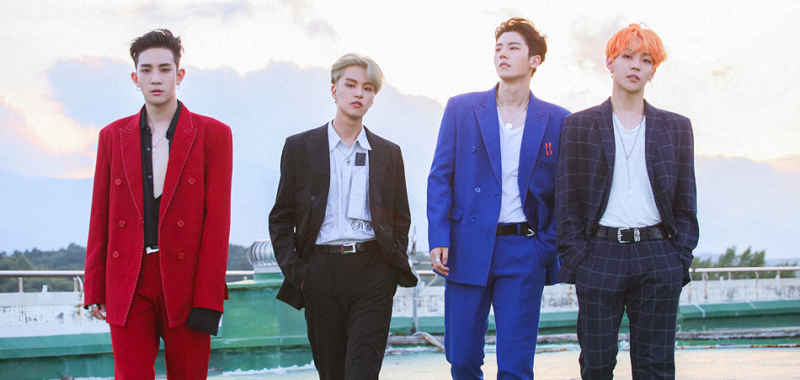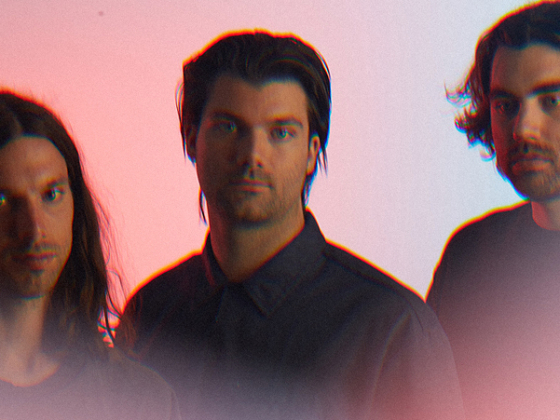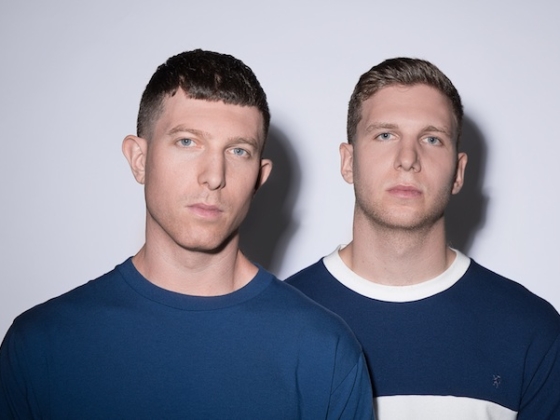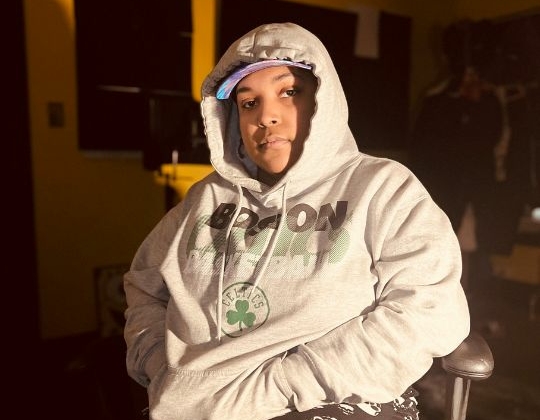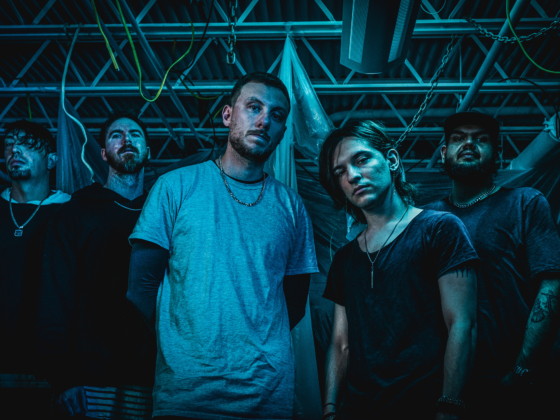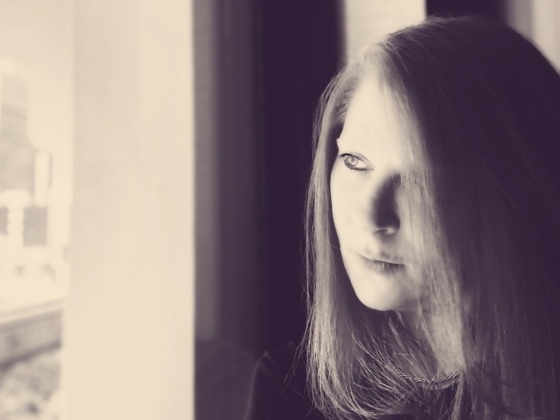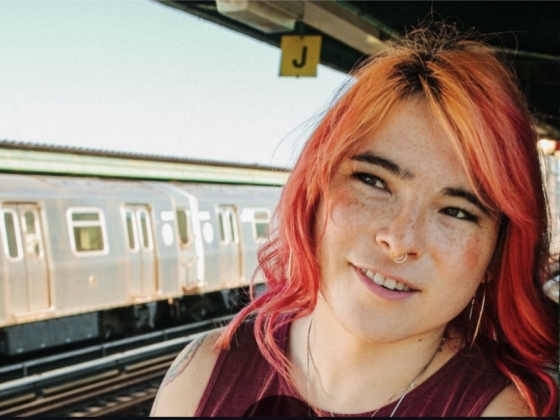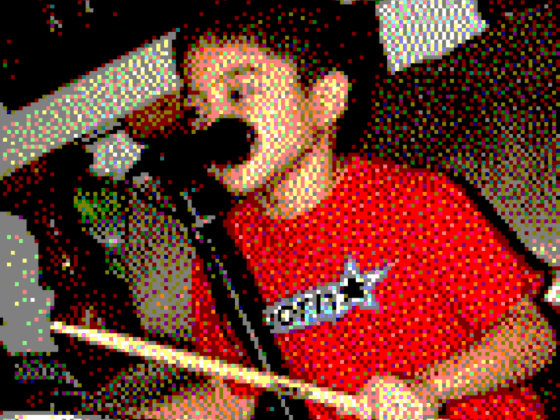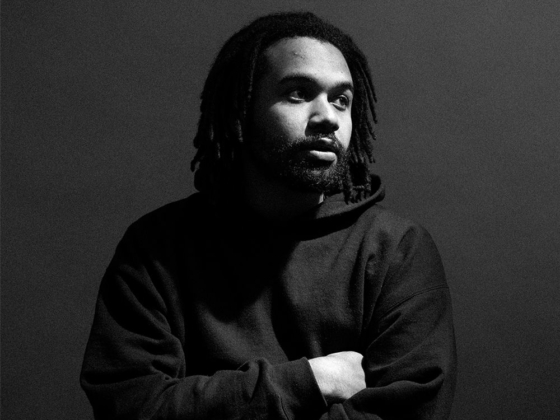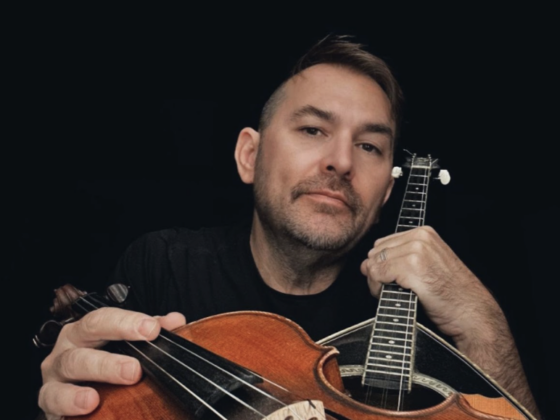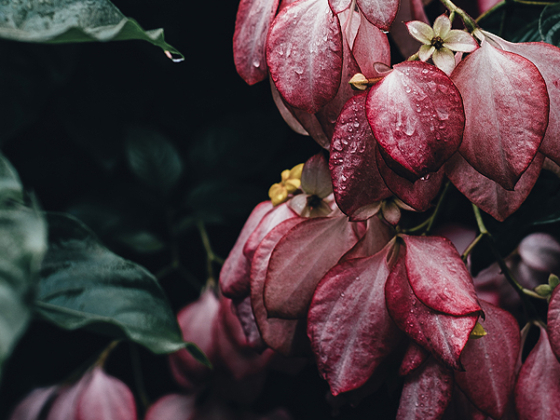It hadn’t even been five minutes into Korean indie band The Rose’s set, and everyone could already tell that something was wrong. Husky-voiced lead singer Woo Sung (who goes by Sammy), was pointing to his in-ear, appearing to not hear himself. Keyboardist and vocalist Do Joon (or Leo)’s face was plagued with uncertainty as his eyes darted back-and-forth between his three other bandmates on stage. Calm and determined, Woo Sung, originally a Los Angeles native, finally stopped playing.
“Sorry guys,” he said to the packed crowd of fans at New York’s Town Hall. “The sound isn't right. We have to re-do soundcheck because we can’t hear ourselves. This has never happened before — I hope that’s ok.”
“It actually might be kind of cool for you,” said the unflappable Do Joon, his English seasoned with a slight lilt from his years living in New Zealand. “It’s something a lot of people usually don’t see at shows!”
The fans, known as Black Roses, erupted in excitement, relishing the opportunity to see The Rose in a raw moment, without the mask of showmanship between them.
Perfection is something you come to expect as a fan of Korean groups — most of all in K-pop. Concerts are perfectly choreographed spectacles in which the idols are on from the moment they step out on stage. And while there are certainly unscripted moments peppered here and there — a heartfelt speech to fans, a fun game played by all the members — there usually feels like a mystical curtain lies between the performer and the audience. There’s a reason they call them idols, after all.
But The Rose isn’t a K-pop group. They don’t just rely on someone pressing play on an instrumental track. This is an indie rock band, who play their own instruments. So things can go wrong. But when they do, like that fateful stop on The Rose’s We Rose You Tour, it can actually be kind of refreshing. That’s rock ’n’ roll.
“You need to sing loudly because I might not be able to hear myself, and I might sound really bad,” said Woo Sung as the group finally prepared to go on with their opening song. The Black Roses obliged, singing the words — in Korean, one should note — to “ILY.” After the song ended, Woo Sung, obviously touched, took a beat, smiled and addressed the crowd.
“I’ve never played a concert without in-ear monitors, and it feels like we’re here to really connect with you. It’s not about the key being on or off, the timing… it doesn’t matter because we’re singing together. And it’s amazing.”
Following the show, EARMILK sat down with The Rose’ Woo Sung, Do Joon, drummer Ha Joon and bassist Jae Hyeong to go over that unique show, the band’s roots, and The Rose’s special place within the Korean music industry ecosystem.
EARMILK: What was that experience like dealing with those difficulties and then ultimately continuing to play despite them?
Do Joon: We heard every single thing the fans said. It was so cool.
Woo Sung: I actually couldn't hear anything, so I heard the fans singing in tune, and that's what I followed to sing yesterday. I was so off key I bet, but I was listening to them, so I was on their tune.
EM: When you were setting out to put out this next chapter in your music, what was the message you wanted to get across?
Woo Sung: Our biggest message was just be who you want to be and don't care about what other people think. We always wanted to express that because that's how we live. I think that's how everybody should live if they want to.
Do Joon: Other than messages, we just wanted them to feel really uplifted by our songs.
EM: You have two songs on this EP. Why is one of them, “California,” in English?
Woo Sung: I think it was best to put out our message in English than Korean. We couldn't say things like 'grizzly bear' in Korean.
Do Joon: Yeah.
Woo Sung: I don't even know what grizzly bear is in Korean. What is that?
Do Joon: Just 'bear.' [Laughs.]
EM: Just "bear"?
Woo Sung: Yeah. Using English was the way we could include the California things that we wanted to talk about and put out there.
Do Joon: We originally wrote the song in this English/gibberish hybrid. Then we thought, ‘If we put the lyrics into Korean, it will sound weird.’ We just felt that. So we just decided to follow our gut and record in English.
EM: How do you try to evolve in your sound while still staying true to what The Rose is?
Do Joon: I think it's with the guitar tone.
Woo Sung: The tones of the-
Do Joon: Instruments.
Do Joon: Yeah. Even though we play a different note, we have the same tone. I think that's the reason why it feels like it's staying in our zone.
Woo Sung: Whenever we sing a happy song or sad song, it's still our voice, right? And then what we do with the instruments is we have this tone that we like to use. And we switch it up sometimes, but we still have the same foundation.
EM: How do you characterize what that foundation sounds like?
Woo Sung: I can’t really describe it — it’s this particular guitar tone with reverb we like and have been drawing from since the beginning.
EM: What inspired you to write “Red”?
Do Joon: We wanted “Red” to be really, really exciting. I wanted the listeners to jump when they heard the song.
Woo Sung: The lyrics say 'throw your sticks and stones.' It’s about doing what you want, even in the face of criticism. The color red symbolizes something that's passionate and out of the norm. That's what we wanted to talk about.
EM: Rock has had a much shorter history in Korea than it has in the U.S. How do you feel that people in Korea relate to rock and indie music? Is it different because it's still relatively new?
Woo Sung: It might feel like Koreans are new to rock bands, but they're really not. There have been so many good bands that have impacted in Korean music. They were different than Led Zeppelin, AC/DC, and Aerosmith though — they played more rock ballads. There was YB, and then this rock legend with really long hair named Kim Kyung-ho. People have been exposed to a lot of rock but they just don't know it, in a way, because after that era it kind of just faded away.
EM: What happened?
Woo Sung: Well there’s an amazing band called Buzz, and everybody knows their songs, but they don't think they're a band. They just think of them like ballad singers. So they are used to these melodies and sounds of guitars and bass, but they just don't know it. And I think there’s a resurgence of the genre where people are now seeing us playing instruments and seeing that it has a history.
Do Joon: Actually, Koreans think bands are old-fashioned. They think playing real instruments is a really old, traditional way to play music. Especially given the popularity of K-pop idol music. But we don't think that, obviously.
Woo Sung: Hopefully once they listen to our music, they won't think that either.
EM: So growing up, was being into playing instruments and wanting to be in a band really…uncool?
Woo Sung: I mean, it is and it is not, I think. Since there are more dance idols, I think that's the thing right now in Korea. Bands are less so, but we’re trying to make bands a thing. [Laughs.]
EM: What got you into playing music? Especially if, as you say, it was considered old school and not ‘cool.’
Jae Hyeong: When I was younger, my father sang and played drums. I wanted to be like him so I learned the acoustic guitar, then the bass in high school.
Woo Sung: He might be better than me at electric guitar. He makes a lot of the guitar lines in our songs.
Do Joon: I lived in New Zealand in elementary school, and you get to choose an instrument to play. I chose guitar. And if I had free any time I would practice. I loved it. I like playing keys too because it sounds classic. When I was in kindergarten, my mom made me play.
EM: Were your parents musicians?
Do Joon: Oh no. No, no. They're just…ordinary people. They play golf.
Woo Sung: When I was 12 years old, I saw AC/DC on YouTube and I really liked the guitarist, Angus. So I asked my mom and dad — I needed that guitar. They bought me a guitar for Christmas, but I put it down after playing for a month because I thought it was boring. After that, I went to high school and I got an acoustic guitar. I started playing with some friends, and we would have bonfires at the beach, where we'd start singing and such. I was never that serious about music until I was like 20 years old or when I was in a band.
Ha Joon: When I was 12 years old, I saw an older guy playing drums at church and thought it was cool, so I started playing in the church band.
Do Joon: He still plays with them if he has time.
Ha Joon: I attended an art school, so I picked up other instruments by peeking over my friends’ shoulders.
EM: How would you describe this season of your career?
Woo Sung: I think with Red and this upcoming year, it's a chapter where we can move on to bigger things. We like taking things slowly, but I really think this will give us even more momentum.
Do Joon: I think we're learning how to walk now. And later on, when we know how to walk, we might be able to run.

